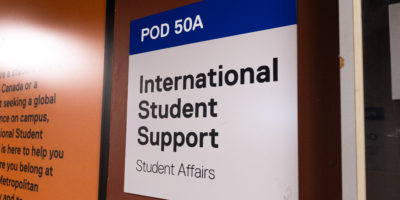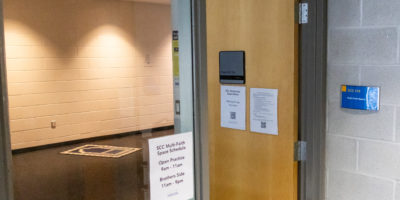By Shaheen Ramputh
The federal government may be scrapping Income Contingent Plans (ICRP) but the Ontario government is still committed to the idea.
This means students with loans from both provincial and federal government programs may have to repay their Ontario Student Assistance Program (OSAP) debts and Canada Student Loans (CSL) differently.
Ontario’s Tories are hoping to implement ICRPs next fall. The scheme will have students pay back their debt over an extended period of time by basing their monthly payments on their income. Currently students pay a set amount every month until the loan is repaid.
However, students say ICRPs prolong and increase the student’s debt by extending the plan to up to a 25-year period, where the interest of the loan itself could exceed the amount of the loan.
“ICRPs are bad for many, many, many reasons,” said Angelo DeLuca, RyeSAC president. “But the main reason is that they are a debt sentence for years.”
The province disagrees, saying ICRPs prevent students from declaring bankruptcy, which leaves taxpayers carrying the burden of paying defaulted loans.
“It’s a great way for students to gradually pay back their loans,” said Danielle Gauvin, a Ministry of Education spokesperson. “Both the students and the taxpayers are winners.”
She refused to release details and would not give a date when the plans would be made public.
The Canadian Federation of Students (CFS) said in a press release last week that the federal government had abandoned ICRPs.
The Globe and Mail also reported that Human Resources Minister Pierre Petigrew “made it clear he wants nothing to do with income contingent loans.”
A Human Resources spokesperson said Petigrew had made no official statement on the status of ICRPs, but added the report was not inaccurate.
“We at least know that things are not yet in lace,” said Wayne Poirier, Ontario chair of CFS. “So we are continuing to put pressure on [politicians] to stop it.”
Banks are also in agreement with Poirier. The senior manager of corporate communications at CIBC believes the provincial government’s plan is not enough.
“The view of financial institutions, from what we have barely seen, is that a long-term repayment plan is inadequate to deal with the debt crisis students are facing,” said Wally Hill.
Hill believes the plan will have to include many debt management tools such as interest relief and loan remissions that would turn into grants is a student did not have the income to pay off his or her loan.
The CIBC, which deals with OSAP, has seen bankruptcies triple in the last six years.
But many students on OSAP don’t know what an ICRP is.
“This lack of knowledge makes this whole idea even worse,” said Gord Tanner, RyeSAC’s VP education. “Students have no idea what they might be hit with.”
Tanner and Poirier are both upset with the provincial government for refusing to release any details.











Leave a Reply